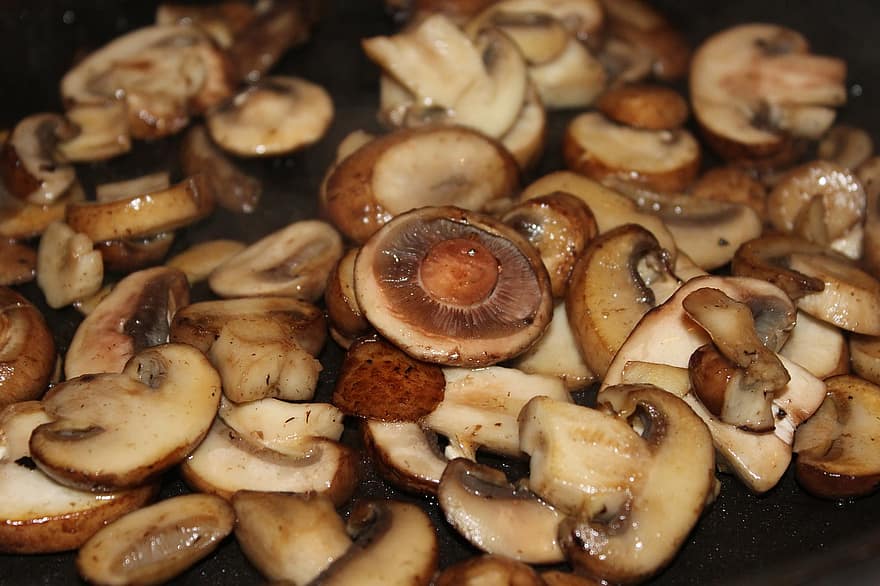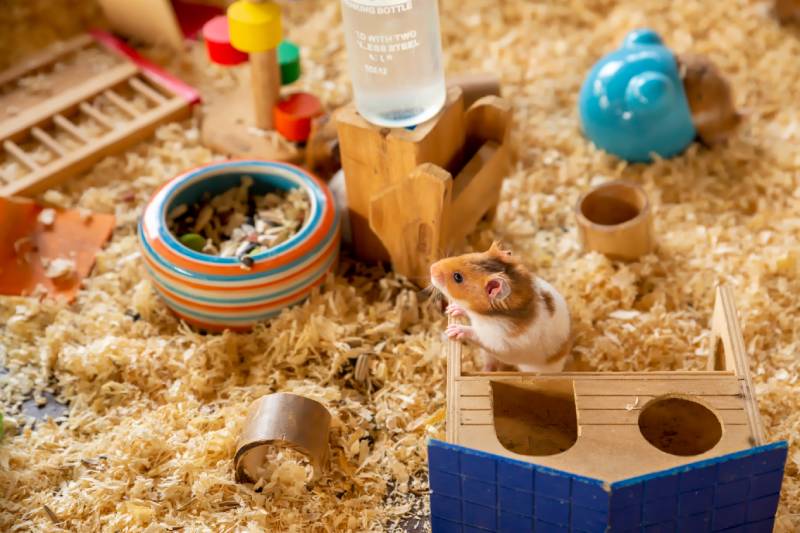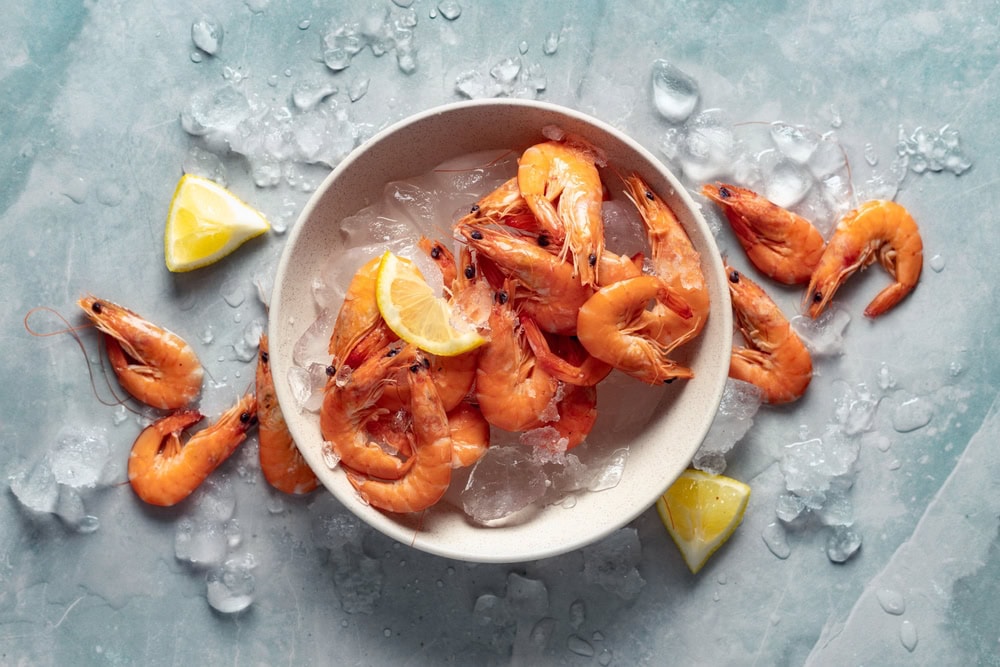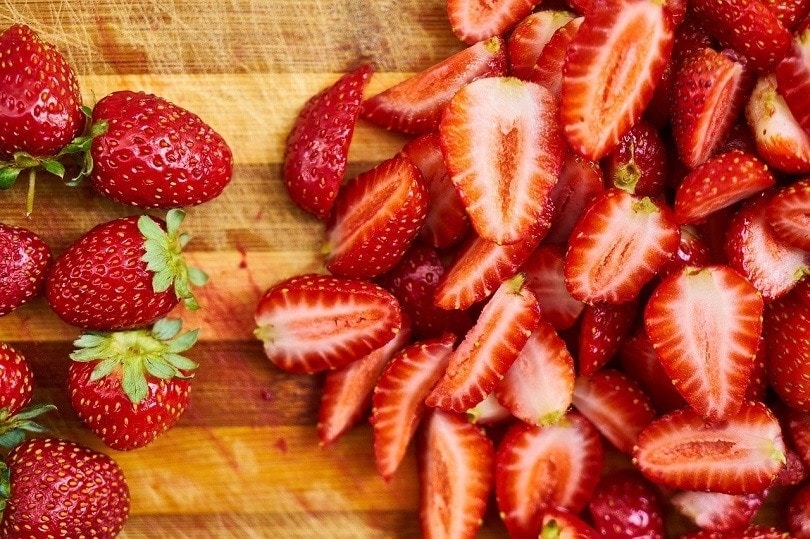Can Hamsters Eat Mushrooms? Vet-Reviewed Nutrition Facts
Updated on
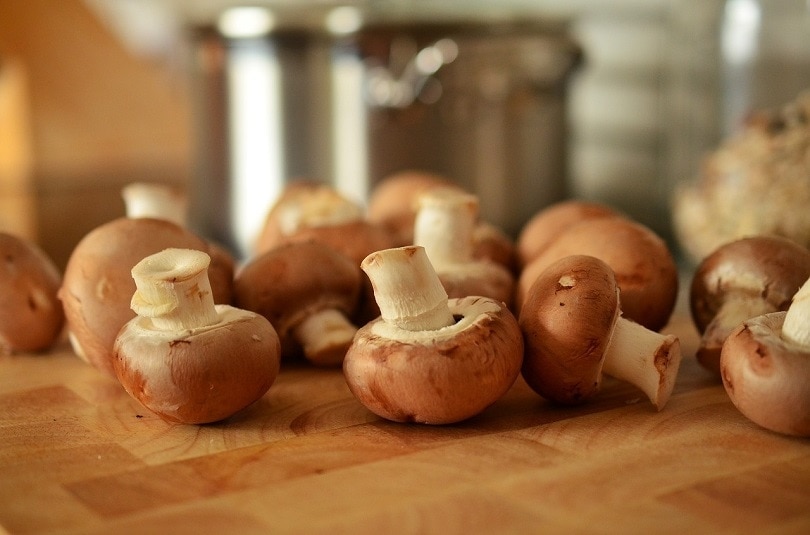
Hamsters are one of the most popular pocket pets, partially because they are less demanding of our time and space than many other companion animals. However, they still require a lot of care and consideration, particularly when it comes to their diet. Being so tiny, they can quickly become sick or unhealthy if they don’t eat the proper food. While hamsters can technically eat non-toxic mushrooms, they may not be the most nutritious food to offer your pet.
In this article, we’ll discuss the pros and cons of feeding your hamster mushrooms. We’ll also answer some frequently asked questions about whether mushrooms are a good choice for hamsters, and what they should eat to stay healthy.
Feeding Mushrooms to Hamsters: Pros and Cons
While we don’t have much research regarding whether mushrooms are healthy for hamsters, they provide health benefits for humans. Mushrooms may help improve gut health, boost the immune system, and lower cholesterol and sodium in people. Interestingly, Syrian or Golden hamsters are often used as models for humans when evaluating diet, as they share some important similarities with us, particularly when it comes to obesity and cholesterol.1
Hamsters and humans are omnivores, but rodents have different nutritional needs than we do, so we can’t say whether mushrooms have the same benefits. Eating any extra food, such as mushrooms, isn’t a necessary part of a nutritionally balanced diet for your hamster, and it could cause them to eat less of their primary food.
If you want to offer hamster mushrooms, stick to store-bought varieties only. Some wild mushrooms are extremely toxic, for us as well as them, and it can be tricky to properly identify safe species.

How Do Mushrooms Fit into a Hamster’s Diet?
The most crucial component of your hamster’s diet is a nutritionally balanced pellet diet formulated for hamsters. These diets provide the right blend of protein, carbs, fat, and fiber that a hamster needs to thrive.
Mushrooms, along with other ‘human’ foods should only be offered as treats or supplements to this pelleted diet. However, wild hamsters are quite opportunistic when it comes to food, so it is quite possible that they might nibble on some fungi when given the chance.
How Should I Prepare Mushrooms for My Hamster?
As we mentioned earlier, you should only feed your hamster store-bought mushrooms that you know are safe and non-toxic. Wash the mushrooms and chop them into small pieces for your hamster to eat. Raw mushrooms offer the most benefits in terms of nutritional value, but some hamsters will prefer the taste of cooked mushrooms.
Avoid feeding your hamster mushrooms cooked in oil or butter, and try mixing mushrooms with other safe fruits and vegetables for your hamster to enjoy as a treat. Remember that hamsters can be picky eaters, and yours may not enjoy the taste or texture of mushrooms.
Frequently Asked Questions
What Other Human Foods Are Safe for Hamsters?
Here are some safe human foods besides mushrooms you can offer your hamster:
- Leafy greens
- Sugarless grains or cereal
- Carrots
- Cucumbers
- Apples
- Peas
- Boiled egg
What Foods Should I Avoid Feeding My Hamster?
Commercial hamster diets that include seeds and dried fruits are not as healthy for hamsters as pellet foods and should be avoided. However, seeds can be fed as an occasional snack. Don’t feed your hamster citrus fruits, avocado, chocolate, or other processed human foods.
How Much Should My Hamster Eat Each Day?
Ask your vet to help you determine how much your hamster should be eating. Hamster nutritional needs may vary by age, species, size, and activity level. On average, hamsters eat ⅛ to ⅓ of a cup of pellets each day, plus safe human foods, as we discussed.
Being a nocturnal species, most hamsters eat at night, so try feeding them in the evening. Provide clean, fresh water for your hamster daily.
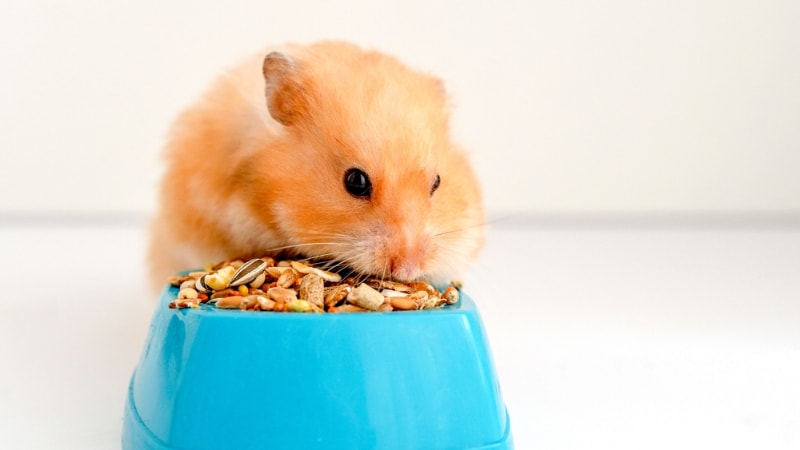
Conclusion
Hamsters can eat store-bought mushrooms occasionally, as a treat or to supplement their normal pellet diet. However, they don’t need to eat them, and picky hamsters may not enjoy the taste.
Before offering any new food to your hamster, including mushrooms, check with your veterinarian to ensure it’s okay. Like humans, hamsters can become overweight if they overeat or eat the wrong food. It’s best to monitor your hamster’s food intake to prevent health issues.
Featured Image Credit: congerdesign, Pixabay


